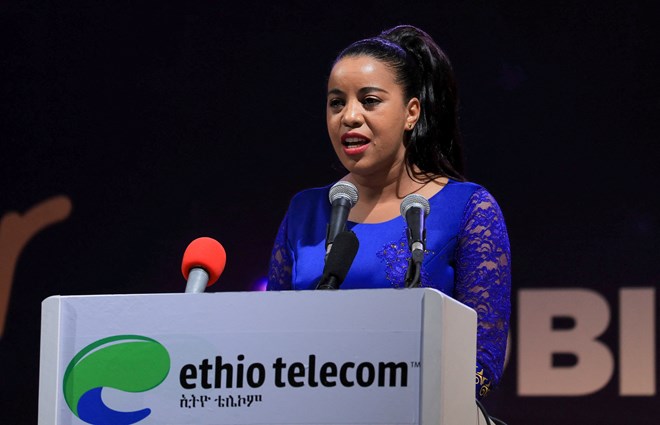
Thursday May 12, 2022

State-owned operator Ethio Telecom launched a 5G mobile
phone service on Monday in a key step ahead of competition from new entrants in
an industry that has been closed for international players.
Next-generation 5G networks can provide data speeds at least
20 times faster than 4G and are seen as important for emerging technologies
like self-driving cars and enable communication and interconnectivity between
smart devices.
Ethio Telecom Chief Executive Officer Frehiwot Tamru said
the service will first be available in the capital Addis Ababa, before
eventually spreading to other parts of the country.
"The 5G service is launched in selected places in Addis
Ababa," she said at a launch event. "In the coming 12 months, we will
have 150 5G sites in Addis Ababa and outside Addis Ababa."
Frehiwot did not say how much deploying the network would
cost.
Ethio Telecom, which has 64 million subscribers across the
nation, said in a separate statement that China's Huawei Technologies (HWT.UL)
was its equipment supplier for the network.
It recorded a 6.7% rise in revenues to 28 billion birr
($544.40 million) in its half year to Dec. 31.
The government launched a tendering process for selling a
40% stake in Ethio Telecom to private investors last June.
In March, the government said it had postponed the planned
partial privatisation because of the prevailing economic environment
domestically and globally.
In December, industry regulator Ethiopian Communication
Authority said it had also suspended a tender process for a second
telecommunications licence, which it said it would relaunch in the "near
future".
The Horn of Africa country of about 110 million people sold
only one of two full-service licences on offer in May 2021.
The winner of the first licence, a consortium led by Kenya's
Safaricom SCOM.NR, Vodafone (VOD.L), and Japan's Sumitomo (8053.T), is in the
process of setting up its network ahead of a planned commercial launch due
anytime now.
The licences are considered a big prize in the country's
push to liberalise the economy, which had been one of the world's last major
closed telecoms markets.